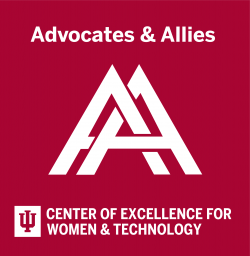This week, we are looking at one of the most common forms of gender bias – the implicit and explicit devaluation of women. We chat “untitling,” stereotypical perspectives of women’s abilities, how we can make space for the expertise of women, and more!

Reflect: Have you seen “untitling”?
Omitting professional titles, or “untitling,”1,2 is rampant in how people refer to women in positions of power or higher influence. Untitling in higher education looks like women faculty being greeted without their proper title (e.g., “Mrs.” vs. “Dr.”). A recent example of this is last years’ widely controversial Wall Street Journal op-ed that suggested that Dr. Jill Biden, First Lady of the United States, did not deserve to be called “Dr.” Related to untitling is “unnaming” - the tendency for people to name men in describing a scenario while simultaneously leaving involved women unnamed. Dr. Shivani Misra’s story of not being cited exemplifies how entrenched this phenomenon is, even when a woman is first author. Where have you seen people untitle/unname women in your field? How do people respond when this happens?
Learn: In what ways are women’s competence de-legitimized in higher education?
There are many ways in which higher education allows women to continuously and consistently be de-legitimized. Academics are more likely to view a field as “soft science” if they perceived a higher number of women within the research ranks; stereotypes about women’s ability and competence in STEM were predictors of this bias.3 In student evaluations, women are consistently rated lower,4 regardless of their performance5 and whether the same content is being delivered with the same method.6 In addition to the stereotypes of women’s technical or academic ability, emotionality is a frequent stereotype used to devalue women. This stereotype has been used as an alternative, negative explanation for behaviors that are also present in men7 and caused many women to be questioned on their ability to lead or be an expert.8,9 Bias against women’s capabilities is not only present in men, as women are found to sometimes favor men over women with the same qualifications.10
Change:
- Discussion questions: We are providing here questions for you to start up a conversation with those in your family, your office, and/or your friend circle. How often are women devalued in your community? Who speaks up for women when they are being devalued? What ways can we uplift the work and expertise of women? What are the rules for keeping each other accountable to not devalue women? How can we address bias in the formal evaluations done, being sensitive to the devaluation of women and other marginalized groups?
- Make space for women to speak on and pursue their expertise: Another way that women are devalued is when they are not included in opportunities to speak as experts. If you are considering speakers for an event, literature for your study/class, or simply resources to share with others, make the conscious choice to incorporate/invite women. If you are invited to speak and see that only men have been included in the discussion, advocate that the organizers include women and gender non-conforming/non-binary academics; this can include sharing the names of people you know or, if the organizers refuse, calling out the event for not being inclusive. Additionally, disparities in academic service demands based on gender and race persist11; make sure that tasks that are deemed “less desirable” are being equitably divided.
- Reassess how you evaluate the work of women: Methods like student evaluations of teaching are often more effective measures of bias and grade expectations than they are of effectiveness.12,13 Recognizing that bias is prevalent throughout subjective evaluations of objective aspects of one’s capabilities, think about alternative frameworks that you can use to evaluate performance. If you must use a certain method that is susceptible to bias, consider how you weigh these evaluations with respect to their reliance on subjective observations. This consideration can be included in peer evaluations, yearly reviews, and more. Talk with others in your unit, office, classroom, or working group about the ways in which certain evaluation methods can be biased against certain populations, including women.
Weekly Resource Recommendations
- Book: Presumed Incompetent: The Intersections of Race and Class for Women in Academia – This edited volume uses empirical studies and personal narratives to explore the bias women of color face in academia.
- Video: The Credibility Gap: How Sexism Shapes Human Knowledge – Soroya Chemaly traces the influence of sexism around women’s competence as contributing to worldwide inequity.
- Article: If Only Quoting Women Were Enough - Amanda Taub and Max Fisher discuss that increasing the visibility and representation of women as experts and disrupting sexism takes much more than just citing more women.
- Podcast: Beyond the Microscope – This podcast features the stories of women in STEM, including their personal journeys outside academics and how they handle exclusionary barriers.
Get these tips delivered to your mailbox!
We send these tips every Tuesday during the fall & spring semesters to our mailing list. If you are not already on our mailing list you can request to be added by completing the form below.

